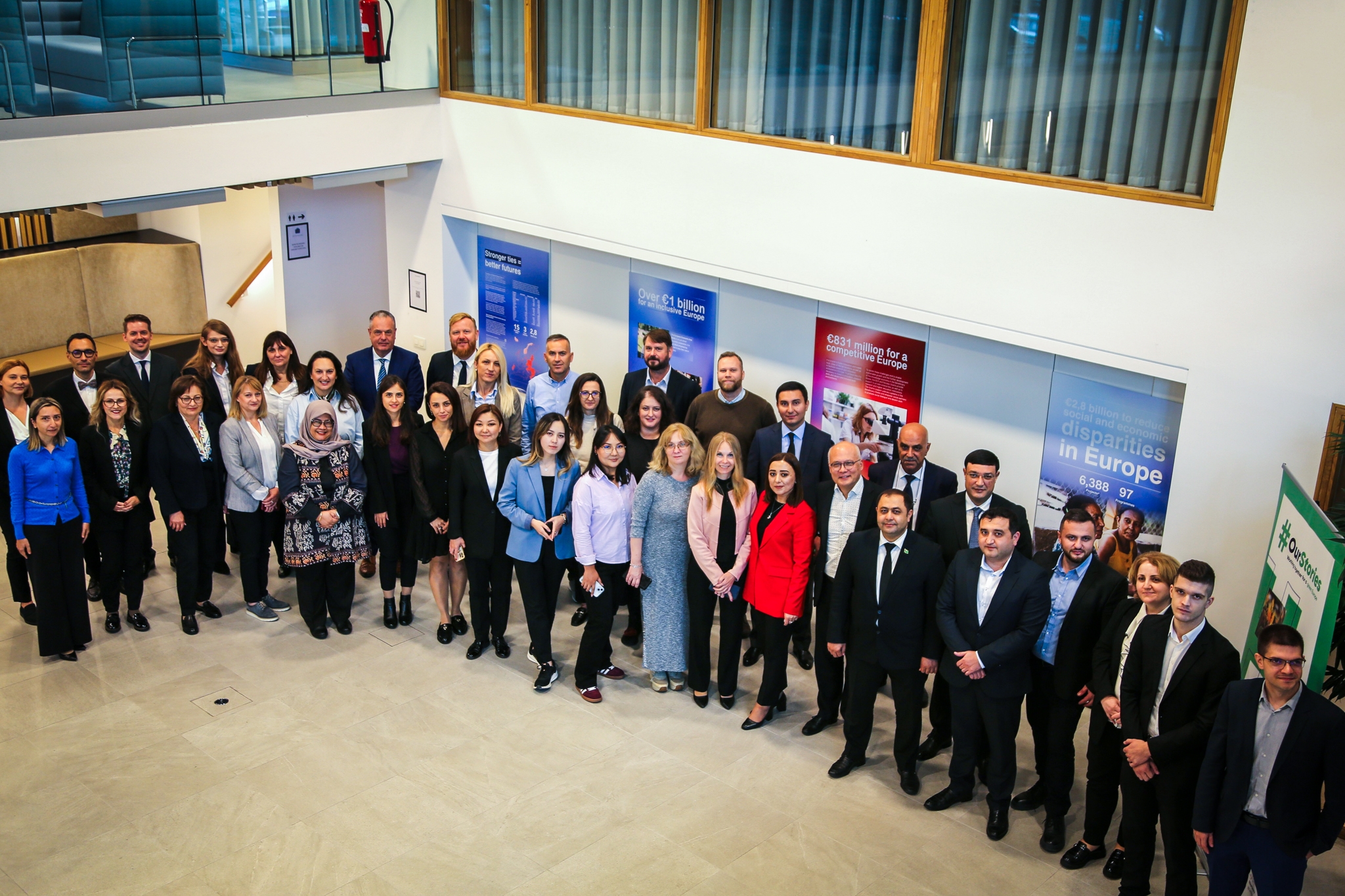
In-person participants at the Financial Accounts Workshop at EFTA House in Brussels.

In-person participants at the Financial Accounts Workshop at EFTA House in Brussels.
From 1 to 4 October 2024, EFTA and UNECE hosted a Workshop on Financial Accounts at EFTA House in Brussels, with the support of Eurostat, the European Central Bank, Statistics Netherlands, and the International Monetary Fund.
Financial accounts depict the assets and liabilities of various economic sectors, such as the mortgages owed by households, or the listed shares owned by non-financial corporations.
In the wake of the 2008 financial crisis, statisticians and economists recognised the need for a comprehensive and accurate system of financial accounts to promote transparency and accountability in both the public and private sectors. This system enables policymakers to assess the impact of fiscal and monetary policies, helping them to design strategies that promote economic stability and growth, and to monitor their implementation.
In this context, EFTA’s aim is to increase the availability of high-quality, reliable and comparable financial accounts data in its partner countries. These data serve policymaking at national and international level as well as EFTA’s third-country policy, and are used for general information and comparison purposes.
For the third year in a row, EFTA and its partners organised a week-long workshop dedicated to financial accounts, which this year brought together over 90 experts in the field – 46 in person and 45 online – from international organisations, central banks and national statistical institutes.
Experts from the EFTA and EU Member States, EFTA’s partner countries and various international organisations convened at EFTA House to share their insights and experiences, and to learn from the presenters. The workshop covered topics such as the new System of National Accounts (future 2025 SNA) at UN level, data collection and analysis, data gaps, quality and dissemination, and new phenomena in the global economy such as crypto currencies and the associated measurement challenges.
The workshop revealed how challenges in the field of data collection are often related to households, as it can be difficult to gain a precise understanding of the economic activities in this sector. Another topic of concern was non-financial corporations, whose importance and role have evolved as the economy has changed.
The presenters illustrated the methods used to compile who-to-whom matrices and the power they have for analysis. These matrices detail the assets and liabilities of various sectors, such as households and non-financial corporations. The presenters also dealt with the underground economy and the compilation of statistics on illicit financial flows.
The workshop was complemented by practical exercises, allowing participants to further hone their skills and gain a deeper understanding of the subject matter.
Experts from Albania, Armenia, Azerbaijan, Belgium, Bosnia and Herzegovina, Georgia, Iceland, Indonesia, Kazakhstan, Kosovo, Kyrgyzstan, Moldova, Montenegro, the Netherlands, North Macedonia, Serbia, Tajikistan, Türkiye, Turkmenistan, Ukraine and Uzbekistan, UNECE, IMF, UNCTAD, ECB and Eurostat attended the workshop in person, with EFTA financing the participation of experts from its partner countries in Eastern Europe, the Caucasus and Central Asia. The workshop formed part of the 2024 EFTA work programme for technical cooperation in the field of statistics as approved by the EFTA Council in January 2024.
The EFTA Secretariat extends its gratitude to the speakers and participants for their insightful contributions to the discussions and interactive activities.